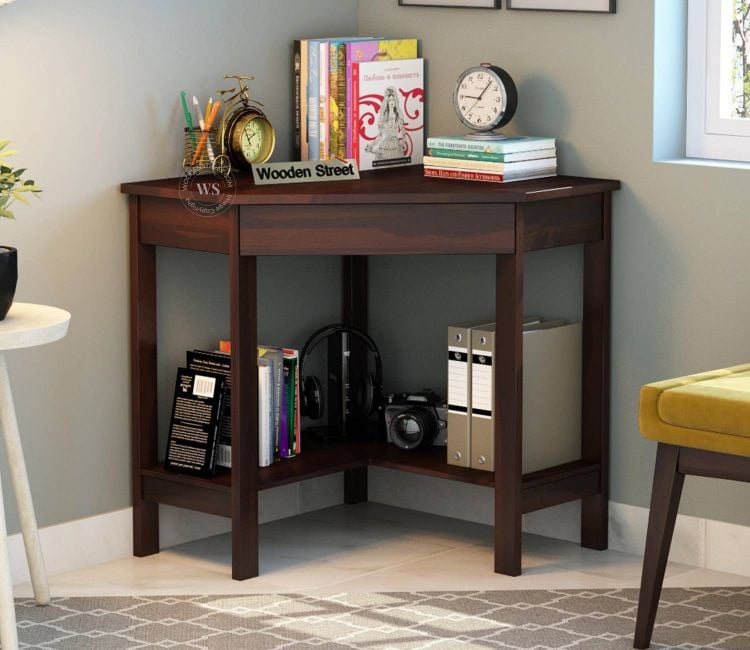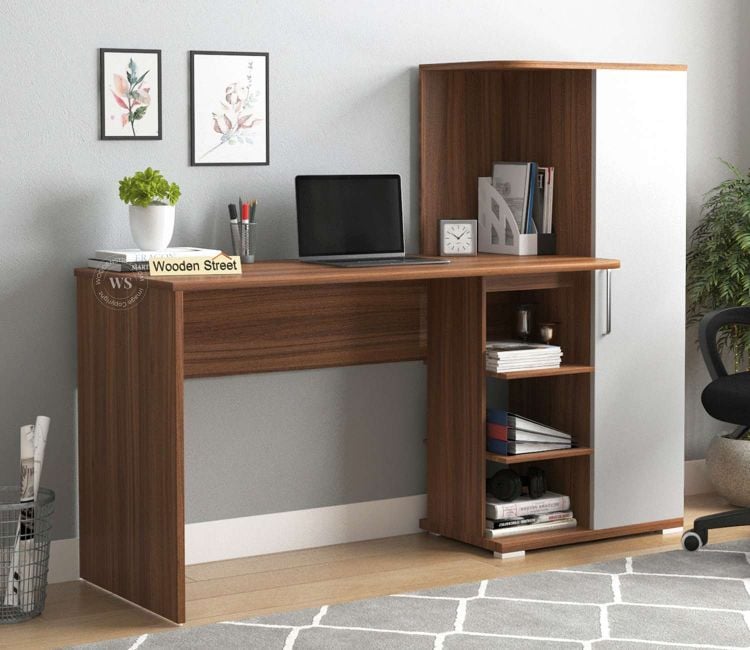A study table is more than just a piece of furniture; it’s your productivity hub, your creative space, and sometimes even your escape from distraction. Whether you’re furnishing a student’s room or setting up a dedicated work-from-home corner, selecting the right study table plays a crucial role in shaping your focus, comfort, and overall efficiency. With a range of options available in terms of size, style, features, and materials, choosing the ideal study table can feel overwhelming.
This guide will walk you through all the essential aspects to consider while buying the perfect study table for home.
1. Assess Your Space
Before diving into designs or materials, it’s important to measure your space. Ask yourself:
- Where will the study table be placed — in the bedroom, living room, or a dedicated study room?
- Is there enough room for a chair and some movement?
- Will the table face a wall, window, or be placed in a corner?
Choose a study table that fits proportionally in your space without making it feel cramped. If you’re tight on space, wall-mounted or foldable study tables are great options.
2. Define the Purpose
What the table will be used for should determine its design and functionality:
- For students: Go for a compact, minimal design with ample surface area to spread out books and stationery.
- For professionals: Look for a study table with drawers, wire management ports, and space for a laptop or desktop setup.
- For artists/designers: A wider table with flexible storage and a clutter-free top is ideal.
Knowing the primary purpose helps in choosing features that align with your needs.
3. Choose the Right Size
Study tables come in various sizes, and picking the right one depends on both space availability and user requirements. Here are some rough guidelines:
- Width: A standard width ranges between 36 to 60 inches. Compact rooms benefit from narrower tables, while a larger setup allows for extended width.
- Depth: A depth of 20 to 30 inches ensures enough workspace without overreaching.
- Height: The ideal height for a study table is 28 to 30 inches for adults and 22 to 26 inches for children.
Make sure the table pairs well with a comfortable chair to maintain proper posture.
4. Material Matters
The durability and aesthetics of a study table largely depend on the material used. Here are some common options:
- Solid Wood: Sturdy, durable, and timeless. Ideal for long-term use and adds a warm, classic vibe.
- Engineered Wood: Budget-friendly and available in various finishes. Great for light to moderate use.
- Metal: Strong and contemporary. Works well in industrial-style or minimalistic setups.
- Glass: Modern and sleek, though more prone to fingerprints and scratches.
Choose a material that aligns with your home décor, budget, and usage intensity.
5. Consider Storage Needs
A well-designed study table should not only offer a work surface but also help you stay organized. Look for:
- Drawers: For storing stationery, gadgets, notebooks, and important documents.
- Open shelves: For books and décor items.
- Keyboard trays: Helpful for computer users to save desk space.
- Cable management: Essential if your workspace includes electronic devices.
If you have limited room, a study table with vertical storage or attached bookshelves can make a huge difference.
6. Ergonomics and Comfort
Comfort is non-negotiable, especially for those who spend several hours a day working or studying. Here’s what to check:
- Legroom: Ensure there’s sufficient space under the table to stretch your legs.
- Edge design: Rounded or beveled edges reduce discomfort and prevent accidental bruises.
- Chair compatibility: Make sure the height of the study table complements the chair you plan to use.
- Posture support: The tabletop should be at an appropriate level so your arms and wrists rest comfortably.
An ergonomic study table can boost productivity while reducing the risk of back pain and eye strain.
7. Match Your Style
Aesthetics matter—especially in a home setting. Choose a study table that blends well with your existing décor. Whether your home has a modern, rustic, industrial, or minimalist vibe, there’s a study table style for everyone:
- Minimalist: Clean lines, neutral colors, and no clutter.
- Traditional: Rich wood tones, detailed carvings, and classic handles.
- Contemporary: Sleek, modern designs with functional innovations.
- Industrial: Mix of wood and metal, raw textures, and open structures.
Your study space should reflect your personality while keeping you inspired.
8. Mobility and Flexibility
If you’re someone who likes rearranging your setup or lives in a rented space, consider study tables that offer mobility and easy assembly.
- Foldable study tables: Perfect for compact homes and can be stashed away when not in use.
- Wheeled tables: Easy to move around for cleaning or layout changes.
- Modular units: Offer adaptability and future expansion options.
Think long-term—your study table should evolve with your lifestyle.
9. Budget Wisely
While it’s tempting to go for the most stylish or elaborate piece, balance is key. Here’s how to approach budgeting:
- Set a maximum price based on how intensively you’ll use the table.
- Remember to account for a chair if you’re buying one separately.
- Compare features and read reviews before making a decision.
A functional, well-built study table is an investment in comfort and productivity. Avoid impulsive choices; go for long-lasting value.
10. Final Checklist Before Buying
Here’s a quick checklist to ensure you’re making the right choice:
- Measured the space accurately
- Chosen the right size and material
- Checked for sufficient storage
- Verified ergonomic features
- Ensured the style matches your room
- Assessed your long-term usage
- Compared prices and features
Final Thoughts
Finding the perfect study table for home is a thoughtful process that balances function, comfort, and aesthetics. Whether it’s for work, study, or creative pursuits, the right table can significantly enhance your daily routine. Take your time to explore different designs, visualize how they’ll fit into your space, and don’t compromise on comfort or quality. After all, a well-chosen study table is not just furniture—it’s a productivity partner that supports your ambitions.


























